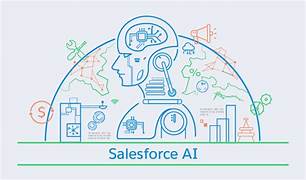Salesforce on AI
Marketing success hinges on delivering consistent, timely, and engaging content. According to the Salesforce State of Marketing report, 78% of high-performing marketers identify data as their most critical asset for creating cohesive customer journeys. Yet, only 49% report having a unified view of customer data sources. This disconnect highlights a significant challenge many marketing teams face in effectively leveraging their data. For organizations already invested in Salesforce, incorporating AI-driven business intelligence (BI) tools offers numerous benefits. These include reduced time to deliver insights, enhanced automation, increased innovation, improved agility, and cost savings. However, realizing these benefits depends on having high-quality data and robust data strategies. This insight explores AI-driven BI from a Salesforce perspective, highlighting its benefits, applications, and future trends. By understanding the potential of AI in BI, organizations can better harness their data to drive success and innovation. The Role of AI in Business Intelligence Integrating AI into BI systems elevates data analysis by offering deeper insights and predictive capabilities. Here’s how AI enhances BI: These examples demonstrate AI’s ability to improve BI systems by enhancing data accuracy, providing real-time insights, and improving forecasting. Salesforce’s AI Capabilities in BI Salesforce’s AI capabilities in BI are embodied in the versatile tool, Salesforce Einstein. Easily integrated with BI, Einstein automates tasks and delivers personalized insights. Companies using Einstein have reported a 20% increase in sales productivity. Here’s how Einstein can be utilized in various scenarios: These examples illustrate how Salesforce’s AI tools, particularly Einstein, can transform BI by automating routine tasks and delivering personalized insights, ultimately driving customer satisfaction and business growth. Future Trends in AI and BI The future of AI and BI promises even more advanced capabilities and innovations. As AI evolves, so too will the tools for BI. Here are some trends expected to emerge in the near future: These trends show that AI and BI are evolving rapidly. Companies that stay ahead of these developments will be well-positioned to leverage AI for greater innovation and efficiency. Next Steps AI-powered BI, especially with Salesforce, is transforming how businesses operate by providing deeper insights and better decision-making capabilities. To stay competitive and foster innovation, organizations must embrace AI. The quest is no longer just to be data-driven. It is to be data-decisioned. Here are some actionable steps: By taking these steps, businesses can fully leverage AI-driven BI and maintain a competitive edge in the fast-evolving digital playinf field of AI. Like Related Posts Salesforce OEM AppExchange Expanding its reach beyond CRM, Salesforce.com has launched a new service called AppExchange OEM Edition, aimed at non-CRM service providers. Read more The Salesforce Story In Marc Benioff’s own words How did salesforce.com grow from a start up in a rented apartment into the world’s Read more Salesforce Jigsaw Salesforce.com, a prominent figure in cloud computing, has finalized a deal to acquire Jigsaw, a wiki-style business contact database, for Read more Service Cloud with AI-Driven Intelligence Salesforce Enhances Service Cloud with AI-Driven Intelligence Engine Data science and analytics are rapidly becoming standard features in enterprise applications, Read more





